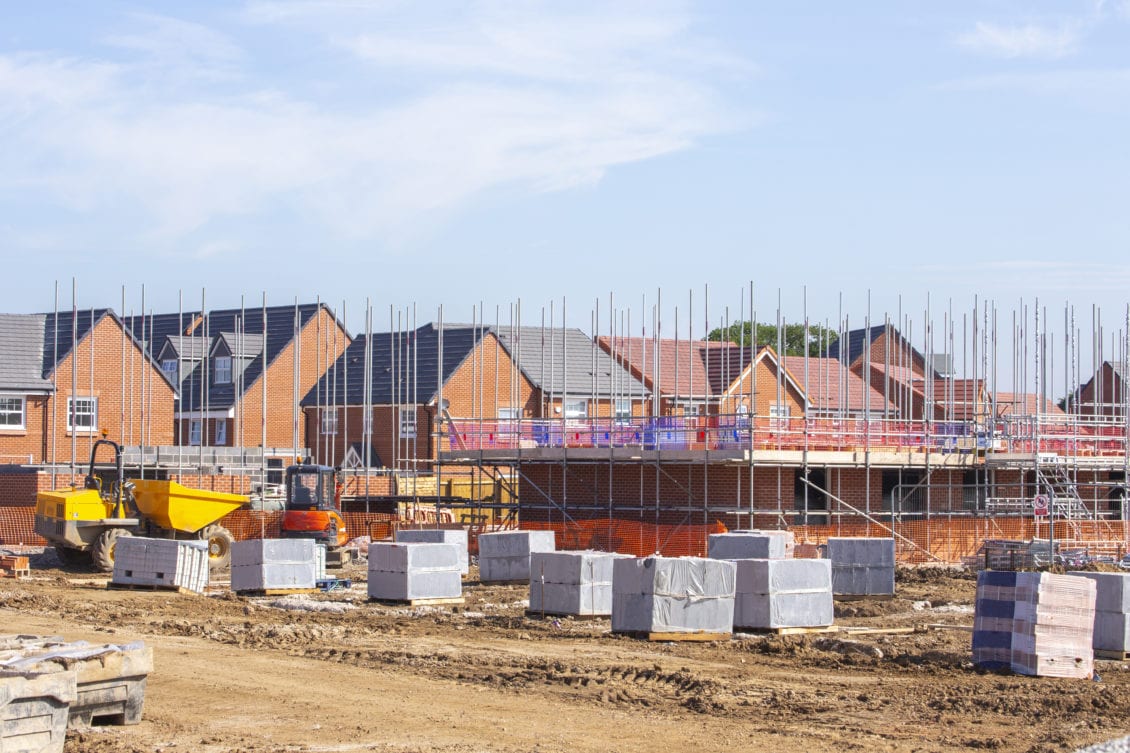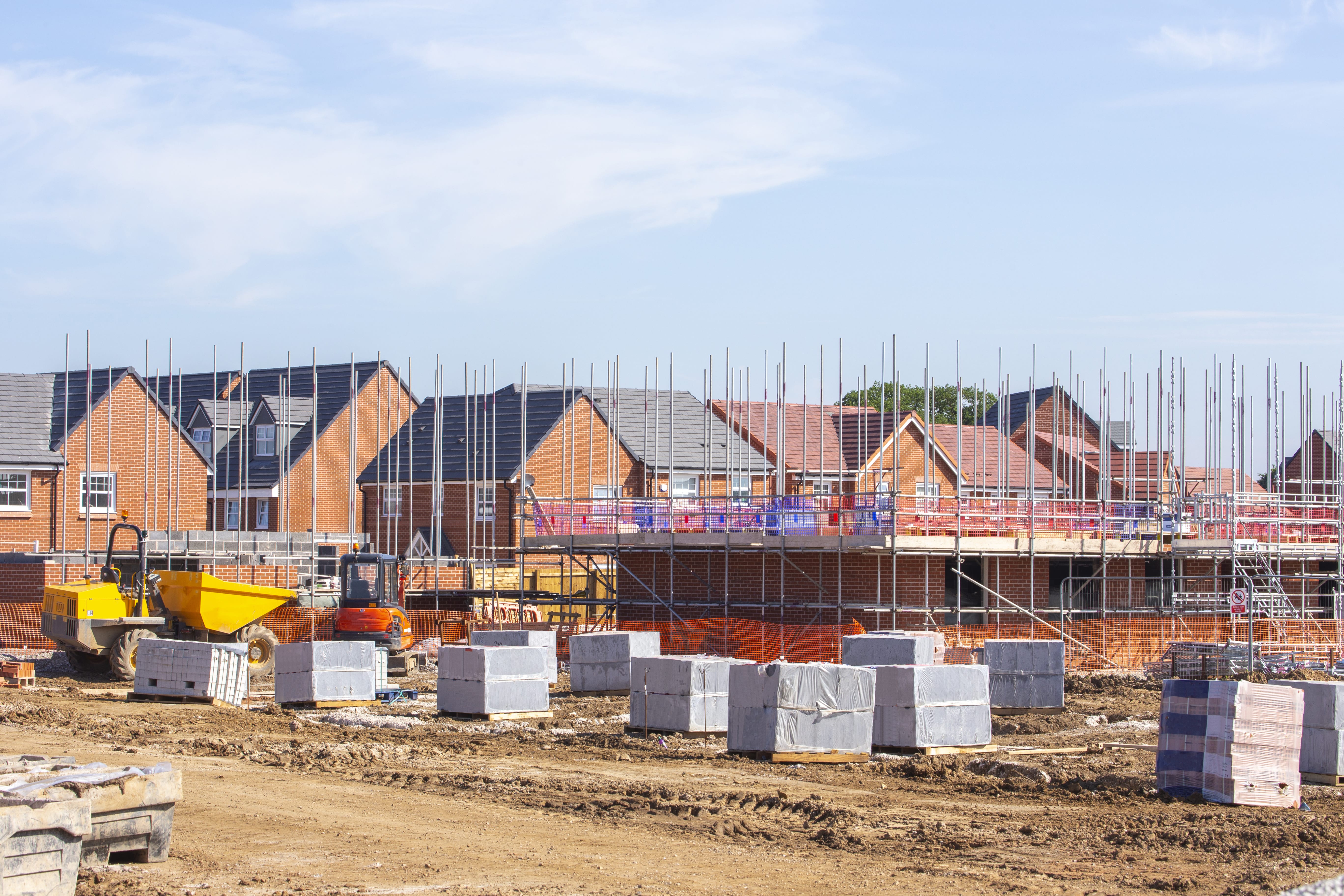Buying a new build home is exciting, particularly as a first-time buyer. New homes are completely untouched by everyone else, so you can make your mark on it and won’t get any nasty surprises when you move in.
However, new build homes also come with some challenges. Often, buyers purchase their new home before it’s complete, which means that you can face delays and other issues during the process. This is often known as buying ‘off plan’.
Late completion is the biggest disadvantage to buying an off-plan new build property, but there are many benefits. An off-plan home can be customised before it’s ready, so you can transform your first home into the unique space that you desire before you even move into it.
These benefits are great, and make off-plan new builds ideal for some first-time buyers. However, their main downside is that you could find yourself moving into your new home later than you expected. Delays in new build properties are common, with less than two-thirds of new build homes completed on time, which can lead to issues.
When choosing a new build home, you need to read reviews of the developer and find one with a great track record for quality property creation and great customer service. This approach will ensure that if there is a delay, then you will get the support you need.
If you’re thinking about buying a new build home that’s not complete yet, then here’s a guide to delays and what you can do to learn more about them and overcome the issues.
Developers Conduct Surveys Before Starting The Project
New build property developers don’t want delays to their project any more than their buyers do, as it can cause them to lose money and more. As a result, they will take precautions to reduce the chances of a setback pushing the completion date back. As part of these precautions, they’ll undertake a variety of surveys on the site before they buy it and start working on their new build development.
These surveys include a habitat regulations assessment, which will allow the developer to understand the implications of its properties and how they will affect wildlife in the area. It also helps developers to understand if they will be potentially disturbing any endangered species so that they can work out if it’s worth using the site or finding another one. If you want to learn more about these surveys and how developers use them to reduce delays, then check out ecologysurveys.uk. They provide these services to developers and have insight into what a preliminary ecological appraisal is and how property construction firms make the most of them to reduce delays.
Supply Chain Issues And Skills Shortages Can Also Cause Delays
As well as planning permission problems, you could also face delays due to supply chain issues and skills shortages. All of these problems could lead to late delivery for your new home. Fortunately for home buyers, these issues should be present early on in the process, so your developer can incorporate them into the delivery date for the project. However, they could also lead to unforeseen setbacks nearer to the completion date, so you need to be prepared for these, particularly during these challenging times.
When you’re facing these issues, you might find that your completion date becomes uncertain. Communicate with your developer to find out what issues they’re dealing with and how long they think they will take to overcome. By communicating closely with the company that’s building your new home, you can understand the delays that you face and deal with them accordingly. If possible, ask for a single point of contact so that you can call them for advice and support. This will mean that you won’t have to go through many different individuals in the company every time you want to find out more about your new home and how it’s going.
Developers Should Inform Your Solicitor And Offer Advice
While delays might be inevitable, developers are still responsible for taking care of the buyer and ensuring that you get the support you need. When they know about a delay, your developer should inform your solicitor. They can also offer advice and support for you, which could help you, as they have experience in building new homes.
Once you’ve been informed about a delay to the completion of your new home, you should contact your solicitor. Even though your developer will do this too, you should talk to them yourself so that you know what you need to do. You’ll also need to inform your mortgage provider, if you have one, to ensure that they’re aware of any delays and can help you to renew your mortgage application if required.
Delays Can Lead To Increased Costs So Be Prepared
Delays to your new build project can lead to increased costs for you. While there are many calls for these costs to be passed to the developer, currently, you are left paying for rent and other costs if your new build home is delayed. As such, you need to make sure that you’re prepared and that you have somewhere to stay until your new home is ready. If you’re renting a home, then you might need to ask a friend or family member to put you up so that you have a roof over your head while you wait for your home to be completed.
Thankfully, you won’t need to pay bills or council tax until the property is ready, but you might have to pay storage and other costs, so make sure that you prepare for these even before you’re told about a delay. If you’re unprepared, then the cost could be higher, and you could cause yourself additional hassle that you don’t need.
While delays in new build projects are common, they are inevitable. If you’re prepared, then you can overcome these issues. Once your new home is ready, you can move in and start making your mark on your immaculate new property.









Leave a Reply
View Comments